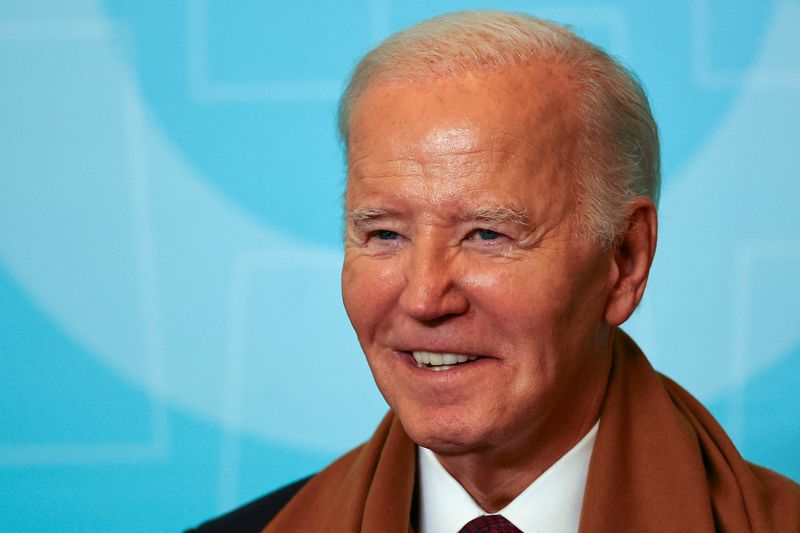In a recent announcement, a senior White House official revealed that President Joe Biden is working towards finalizing a clean fuel tax credit rule before leaving office on January 20. This initiative is part of the Biden administration’s broader efforts to combat climate change and promote sustainable energy solutions. The clean fuel program will offer credits for the production of sustainable aviation fuel and other lower-emission transportation fuels, signaling a significant shift towards greener energy in the United States. The program is scheduled to begin in 2025, although the official did not provide a guarantee that the rule would be completed before Biden’s departure from office.
The clean fuel tax credit is a pivotal part of the Biden administration’s climate policy and aligns with the president’s commitment to reducing greenhouse gas emissions. By incentivizing the production of sustainable fuels, the administration aims to encourage investment and innovation in the renewable energy sector. This rule is seen as crucial for meeting the nation’s climate goals and promoting the transition to cleaner energy sources, particularly in the transportation sector, which is a major contributor to carbon emissions.
In addition to the clean fuel credit, the Biden administration is also planning to release a study analyzing the environmental and economic impacts of liquefied natural gas (LNG) before the end of the administration’s term. Earlier this year, President Biden put a pause on new approvals for LNG exports to allow for a comprehensive evaluation. This decision reflects the administration’s commitment to understanding the full implications of LNG in terms of its environmental footprint and its potential economic benefits or drawbacks.
The pause on LNG approvals has garnered attention, especially as President-elect Donald Trump has indicated plans to quickly reverse this decision upon taking office. Trump’s administration is expected to prioritize the expansion of fossil fuel production and export, which contrasts sharply with Biden’s climate-focused agenda. The upcoming report on LNG will be critical in shaping the narrative around natural gas and its role in the U.S. energy landscape as the country approaches significant policy changes with the transition in leadership.
As the Biden administration works to finalize the clean fuel tax credit and prepare the LNG impact study, it underscores the ongoing debate over energy policy in the United States. The push for renewable energy and lower emissions is met with resistance from those advocating for traditional energy sources. The two contrasting approaches reflect broader political divisions on how best to address climate change and economic growth.
Overall, Biden’s efforts to implement a clean fuel program and evaluate LNG exports illustrate the administration’s dedication to a transformative energy policy. While the future regulatory landscape remains uncertain with the impending change in presidency, these initiatives mark important steps towards a sustainable energy future in the U.S. and contribute to the ongoing dialogue regarding energy production, environmental responsibility, and economic viability.

